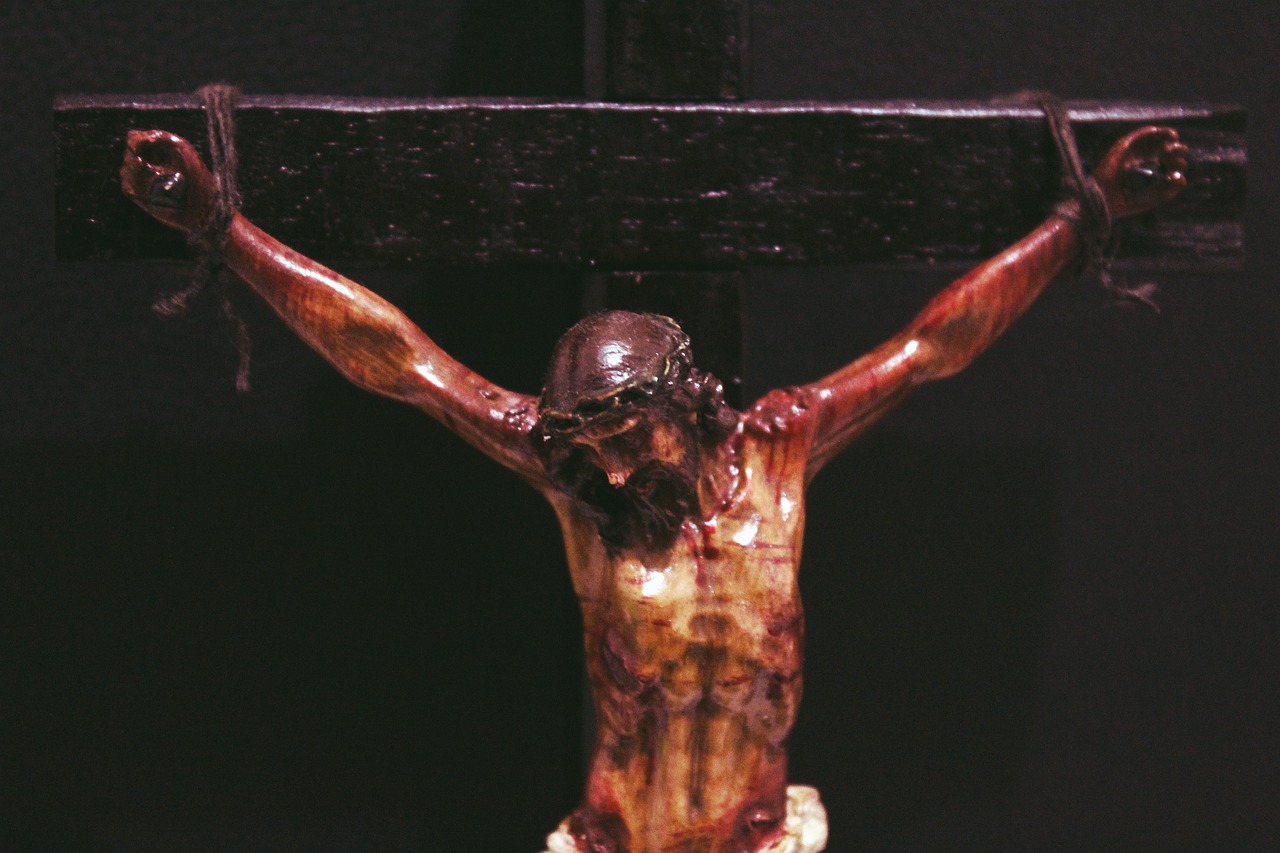Leviticus 17: Understanding its Significance in Connection to Messianic Jesus
Understanding the Importance of Leviticus 17
Leviticus 17 holds significant relevance in the context of the larger book of Leviticus and the Torah as a whole. It serves as a pivotal chapter in the transition from sacrificial rituals to the practice of holiness. Leviticus 17 lays the foundation for understanding the connection between the Old Testament prophecies and the person of Jesus Christ, the Messianic figure. In order to fully grasp the significance of Leviticus 17 in relation to Messianic Jesus, it is crucial to explore the themes and teachings contained within this chapter.
Leviticus 17 provides insight into the importance of obeying God’s commands and the significance of atonement through sacrifice. It emphasizes the necessity of following the prescribed rituals for the proper purification and forgiveness of sins. The chapter establishes a framework for understanding the role of blood and sacrifice in the redemption and reconciliation of humanity with God. By examining the regulations and teachings in Leviticus 17, we can gain a deeper understanding of the theological concepts that underpin the Messianic fulfillment in Jesus Christ.
According to Leviticus 17, the Israelites were instructed to bring their sacrificial animals to the tabernacle, the designated tent of meeting, and present them before the Lord. The blood of the sacrificed animals was to be presented to the Lord as a means of atonement for sins. This act of sacrificing an animal and offering its blood symbolized the transfer of guilt and the seeking of forgiveness. The regulations regarding the slaughter of sacrificial animals emphasized the importance of following the prescribed rituals for proper atonement.
The regulations in Leviticus 17 also specified that sacrifices could only be offered at the tent of meeting, and any other offerings made outside of the designated place were considered unacceptable. This emphasis on centralization of worship highlights the significance of the tabernacle as the place where God’s presence dwells and where His people can seek forgiveness and reconciliation. The requirement to offer sacrifices exclusively at the designated tent of meeting reinforced the importance of approaching God through the prescribed means.
Overview of Leviticus 17
Leviticus 17 is structured into four distinct sections, each addressing different regulations and practices. The first section deals with the regulations regarding the slaughter of sacrificial animals. It emphasizes the importance of following the prescribed rituals for proper atonement. This section highlights the significance of presenting the blood of the sacrificed animal to the Lord as a means of atonement for sins. The act of sacrificing an animal and offering its blood symbolizes the transfer of guilt and the seeking of forgiveness.
The second section focuses on regulations pertaining to other sacrifices, highlighting the requirement to offer sacrifices exclusively at the designated tent of meeting. This section emphasizes the centralization of worship and the importance of approaching God through the prescribed means. It underscores the significance of the tabernacle as the place where God’s presence dwells and where His people can seek forgiveness and reconciliation.
The third section addresses the regulations concerning the eating of blood, prohibiting both Israelites and aliens from consuming the blood of any animal. This prohibition reflects the sanctity of life and the acknowledgement that blood represents the life force that belongs to God. By abstaining from consuming blood, the Israelites demonstrate their reverence for God’s ownership over all life.
Lastly, the fourth section outlines the regulations on animals not slain by human hands, allowing for the consumption of animals that have died naturally with proper cleansing. This section addresses the practicality of dealing with animals that die without human intervention, ensuring that the Israelites can still partake of these animals without compromising their ritual purity.
The regulations in Leviticus 17 serve multiple purposes. They establish a framework for the Israelites to maintain their relationship with God and seek forgiveness for their sins. The regulations emphasize the importance of obedience and adherence to the prescribed rituals to maintain purity and atonement. They also reflect the sanctity of life and the acknowledgement of God’s ownership over all creation.
The Preciousness of Blood in Leviticus 17
One of the key teachings in Leviticus 17 is the significance of blood as a precious commodity. Blood holds a special place in the context of Leviticus 17 as it is associated with the atoning work of the Messiah. The chapter foreshadows Jesus’ sacrificial death and the shedding of His blood for the redemption of humanity. The preciousness of blood in Leviticus 17 serves to underline the importance of Jesus’ sacrifice as the ultimate act of atonement.
In the sacrificial system of the Old Testament, the shedding of blood was essential for the forgiveness of sins. The life of an animal was offered as a substitute for the life of the sinner, symbolizing the payment of the penalty for sin. This shedding of blood demonstrated the seriousness of sin and the need for an innocent life to be given in exchange. However, the blood of animals could only provide temporary atonement, as it was unable to completely cleanse and remove the guilt of sin.
Jesus, as the Messianic figure, fulfilled the foreshadowing of Leviticus 17 by offering His own blood as the ultimate sacrifice for sin. His sacrificial death on the cross provided the perfect atonement, once and for all, for the sins of humanity. The preciousness of Jesus’ blood lies in its ability to fully cleanse and purify, bringing about eternal redemption. In the New Testament, the Apostle Peter refers to the precious blood of Christ, highlighting its value and efficacy in securing salvation (1 Peter 1:18-19).
The shedding of blood in Leviticus 17 represented the transfer of guilt and the seeking of forgiveness. It symbolized the seriousness of sin and the need for atonement. The blood of the sacrificed animals was considered precious because it was the means through which God provided forgiveness and reconciliation. This concept of blood as a precious commodity finds its ultimate fulfillment in the shed blood of Jesus Christ, which provides complete forgiveness and redemption for all who believe in Him.
The shedding of Jesus’ blood on the cross fulfilled the purpose and significance of the regulations regarding the preciousness of blood in Leviticus 17. His sacrifice served as the ultimate atonement for sin, offering complete forgiveness and reconciliation with God. The preciousness of Jesus’ blood lies in its ability to fully cleanse and purify, bringing about eternal redemption. Through His sacrifice, Jesus offers the opportunity for all humanity to experience the forgiveness of sins and the restoration of a right relationship with God.
The Regulations in Leviticus 17
Leviticus 17 provides detailed regulations regarding various aspects of sacrificial practices. The chapter emphasizes the need for obedience and adherence to the prescribed rituals to maintain purity and atonement. The regulations on the slaughter of sacrificial animals explicitly forbid slaughtering them in any other way than in accordance with the prescribed ritual. Similarly, the regulations on other sacrifices state that no other offering or sacrifice can be made outside of the tent of meeting.
These regulations serve as a reminder of the importance of approaching God with reverence and following His instructions precisely. They establish a framework for the Israelites to maintain their relationship with God and seek forgiveness for their sins. By adhering to these regulations, the Israelites demonstrate their faith and trust in God’s provision for their forgiveness and restoration.
Furthermore, Leviticus 17 highlights the prohibition of consuming blood as a symbol of respecting the sanctity of life and acknowledging God’s ownership over it. This regulation applies to both Israelites and aliens living among them. It serves as a constant reminder of the value God places on life and the responsibility His people have to honor and protect it. By abstaining from consuming blood, the Israelites demonstrate their obedience and commitment to God’s commandments.
Additionally, the chapter allows for the consumption of animals that have died naturally, but it emphasizes the need for proper cleansing to avoid contamination. This allowance provides a practical solution for dealing with animals that die without human intervention, ensuring that the Israelites can still partake of these animals without compromising their ritual purity. It demonstrates God’s graciousness and provision in addressing practical issues that may arise in the context of the sacrificial system.
The regulations in Leviticus 17 serve multiple purposes. They establish a framework for the Israelites to maintain their relationship with God and seek forgiveness for their sins. The regulations emphasize the importance of obedience and adherence to the prescribed rituals to maintain purity and atonement. They also reflect the sanctity of life and the acknowledgement of God’s ownership over all creation.
The Connection to Messianic Jesus
Leviticus 17 has a profound connection to the person of Jesus Christ, the Messianic figure. Throughout the Torah, there are prophecies that find fulfillment in Jesus, and Leviticus 17 plays a role in highlighting this connection. While there may not be direct references to Leviticus 17 in the Gospels, Jesus exemplified and fulfilled the regulations and principles mentioned in this chapter.
Jesus’ sacrificial death on the cross can be seen as the ultimate fulfillment of the sacrificial practices outlined in Leviticus 17. His shed blood serves as the ultimate atonement for the sins of humanity, fulfilling the purpose and significance of the regulations regarding the preciousness of blood. Jesus’ role as the ultimate sacrifice and mediator between humanity and God is reinforced by the teachings and regulations found in Leviticus 17.
The regulations in Leviticus 17 foreshadowed the coming of Jesus and provided a framework for understanding His sacrificial death. Jesus’ fulfillment of these regulations validates His role as the long-awaited Messiah. The shedding of His blood on the cross perfectly fulfills the requirements for atonement and reconciliation with God, as outlined in Leviticus 17. Through His sacrifice, Jesus offers the opportunity for all humanity to experience the forgiveness of sins and the restoration of a right relationship with God.
The connection between Leviticus 17 and Messianic Jesus is further reinforced by the New Testament teachings that highlight the significance of Jesus’ sacrificial death. The Apostle Paul, in his letter to the Hebrews, draws parallels between the Old Testament sacrificial system and Jesus’ sacrifice. He describes Jesus as the ultimate high priest who offered Himself as the perfect sacrifice, once and for all, for the sins of humanity (Hebrews 9:11-14). Paul’s writings echo the teachings and regulations found in Leviticus 17, connecting the Old Testament prophecies to their fulfillment in Jesus Christ.
Consequences for Violating the Regulations
Leviticus 17 outlines severe consequences for those who violate the regulations set forth in the chapter. These consequences include being “cut off” from the people and facing the direct involvement of God in administering punishment. Being “cut off” is symbolic of separation from the community and serves as a means to maintain purity and obedience to God’s commands. The severe consequences underscore the importance of obedience and adherence to the regulations as an act of faith and reverence for God.
The consequences for violating the regulations in Leviticus 17 highlight the seriousness with which God views His commandments. They serve as a deterrent against disobedience and a reminder of the significance of following God’s instructions. By imposing severe consequences, God emphasizes the importance of purity and holiness among His people. He desires for them to live in obedience and faithfulness, recognizing the gravity of their actions and the impact it has on their relationship with Him.
The severe consequences for violating the regulations in Leviticus 17 also point to the need for redemption and forgiveness. While disobedience leads to separation from the community, God’s desire is for reconciliation and restoration. The severe consequences serve as a reminder of the seriousness of sin and the necessity of seeking forgiveness and restoration through the prescribed means. It is a call to repentance and a reminder of the grace and mercy that God extends to those who humble themselves and turn back to Him.
The consequences for violating the regulations in Leviticus 17 are not meant to be punitive, but rather to serve as a means of correction and restoration. God desires for His people to live in obedience and holiness, and the severe consequences underscore the importance of this. The ultimate goal is reconciliation and restoration, as seen in God’s provision for forgiveness and atonement through the sacrificial system.
Progressive Revelation and Lessons from Leviticus 17
Leviticus 17 demonstrates the principle of progressive revelation, which is the gradual unfolding of God’s plan of redemption throughout Scripture. The chapter serves as a bridge between the sacrificial rituals of the Old Testament and the fulfillment of those rituals in the person of Jesus Christ. It highlights the value of blood in God’s sight and the need to align one’s actions with the professed beliefs regarding the blood of Christ. Additionally, Leviticus 17 emphasizes the connection between shedding blood and love, underscoring the sacrificial nature of love and the ultimate expression of love in Christ’s sacrifice.
Throughout the Old Testament, God progressively reveals His plan of redemption and salvation. Leviticus 17 contributes to this progressive revelation by providing insights into the significance of blood and sacrifice. It sets the stage for the ultimate fulfillment of these concepts in the person of Jesus Christ. The regulations and teachings in Leviticus 17 serve as a foundation for understanding the sacrificial death of Jesus and the redemption it brings.
The principle of progressive revelation in Leviticus 17 is seen in the connection between the Old Testament sacrificial system and Jesus’ sacrificial death on the cross. The sacrificial system, with its emphasis on the shedding of blood for the forgiveness of sins, foreshadowed Jesus’ ultimate sacrifice. The teachings and regulations in Leviticus 17 laid the groundwork for understanding the sacrificial nature of love and the ultimate expression of love in Christ’s sacrifice.
The lessons from Leviticus 17 extend beyond the specific regulations and practices described in the chapter. They teach us about the seriousness of sin, the need for atonement, and the sacrificial nature of love. The chapter underscores the importance of obedience and adherence to God’s commands as acts of faith and reverence. Additionally, it highlights the value and preciousness of blood, which finds its ultimate fulfillment in the shed blood of Jesus Christ.
In conclusion, Leviticus 17 plays a crucial role in understanding the significance of Jesus’ sacrificial death and the shedding of His blood. It provides insights into the theological concepts of blood, sacrifice, and redemption, establishing a foundation for understanding the Messianic fulfillment in Jesus Christ. Studying Leviticus 17 deepens our appreciation for the preciousness of Jesus’ sacrifice and highlights the importance of obedience and adherence to God’s commands. Through Leviticus 17, we gain a comprehensive view of God’s redemptive plan for humanity and the centrality of Jesus Christ as the ultimate fulfillment of Old Testament prophecies.
#Leviticus17 #BloodCovenant #Messiah #Sacrifice #Atonement #Redemption #OldTestament #ProgressiveRevelation #Holiness #Obedience #Covenant #BloodRituals #SpiritualSignificance #BiblicalProphecy #ChristologicalConnections #DivineRevelation #FaithJourney #SalvationHistory #MessianicFulfillment #SacredScriptures #DivineAtonement #SpiritualReflection #ReligiousTeachings #God’sPlan #BiblicalNarratives #ChristianTheology #ScripturalInsights #AncientRituals #ProfoundMeaning #ReligiousSymbolism #SacrificialLamb #CovenantTheology #BiblicalExegesis #BiblicalInterpretation #BiblicalTeachings #ChristianFaith #Theology #FaithReflection #ScripturalUnderstanding #DivineSacrifice #FaithJourney #RedemptiveMessage #SpiritualConnection #God’sRedemption #ChristianBeliefs #SacrificialLove #SacrificialBlood #CovenantInScripture #BiblicalConnections #SalvationMessage #FaithPerspective #DivineRedemption #Christianity #BiblicalTruths #SpiritualInsights #BiblicalStudy #ChristianReflections #MessiahRevealed #BiblicalRevelation #BibleInterpretation


